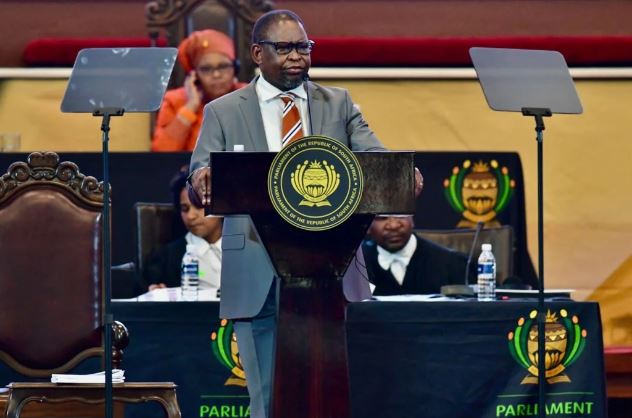South Africa’s financial situation has reached an unsustainable point, and Finance Minister Enoch Godongwana faces a challenging balancing act in the upcoming mid-term budget. While trimming expenditure is necessary, cutting too deeply could jeopardize the nation’s stability.
A worse-than-expected GDP performance is poised to push the budget deficit well beyond the National Treasury’s initial projections. Economists at Nedbank estimate a tax revenue shortfall of approximately R47 billion for 2023/24, coupled with higher expenditures of R56 billion, resulting in a deficit of 5.5% of GDP. This figure significantly exceeds the National Treasury’s target of 4%.
The once-robust commodity price upcycle, which bolstered tax revenues in the previous year, has taken a sharp downturn, leading to a substantial reduction in corporate tax collections. Furthermore, the government’s spending has exceeded the initial 2023 budget, primarily due to an unexpectedly generous 7.5% wage increase.
Amid these challenges, Keith Naidoo, General Manager at Consult by Momentum, asserts that there is no room for tax cuts in the Medium Term Budget Policy Statement (MTBPS), set to be announced on November 1.
Momentum Investments economists suggest that aside from the cumulative contingency reserve and allocated reserve funds totaling R95.2 billion from FY2023/24 to FY2025/26, the government has proposed a public sector headcount freeze and the potential for job cuts and a suspension of new procurement contracts for infrastructure projects to address revenue collection shortfalls.
However, Momentum warns against excessive austerity, highlighting its potential dire consequences for South Africa’s social fabric. With real government spending per capita stagnant over the past decade, proposed austerity measures could further strain the country’s fragile social cohesion and lead to an increase in service delivery protests in the medium to long term.
In other aspects of the MTBPS, Naidoo notes the likelihood of government bailouts for both Eskom and Transnet. Transnet, in particular, faces financial challenges and leadership turnover.
T-bill issuance is expected to play a significant role in financing the larger-than-anticipated budget deficit due to the steepness of the yield curve, making T-bills a cost-effective funding source compared to longer-term government bonds.
Regarding the Social Relief of Distress (SRD) grant, Naidoo anticipates no significant announcements in next year’s election year. Updates on the SRD grant are likely to be addressed during the following year’s National Budget Speech. However, after the SRD grant expires in March 2024, it is expected to continue in the form of a basic income grant for those living below the poverty line.
Finally, despite the announcement of the “end” of e-tolls in the previous year’s MTBPS, updates on the closure process are unlikely in the upcoming statement. The government’s future plans in this regard remain unclear, requiring further elaboration.
